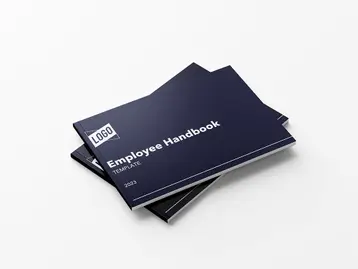
With the new year underway, it’s time to plan out what work schedules and calendars will look like for the year. One of the best places to start is with federal holidays.
What exactly is a “Federal” holiday?
Not all holidays are created equal. Some are federal, some are religious, and some are more for fun (you might have seen mentions of National Pie Day or National Chocolate-Covered Cherry Day floating around on social media.)
As an employer, the most important holidays to know will be federal holidays. These are holidays that have been established by federal law and are applicable across the country.
Government offices and banks are closed in observance of these holidays. Because the federal government has deemed these specific days country-wide holidays, it encourages other businesses to also close so that observance of that particular holiday can be experienced by all. That means that many private businesses are often closed on federal holidays as well.
The difference between federal holidays and religious holidays
The U.S. recognizes just one religious holiday as a federal holiday – Christmas Day. All other religious holidays across traditions do not have recognition as federal holidays. However, as an employer, it is important to note that by law you have an obligation to make reasonable accommodations for employees celebrating religious holidays.
For example, Muslim employees may wish for time off to celebrate their holidays, two of the major ones being Eid Al-Fitr and Eid Al-Adha. To accommodate various religious beliefs and the holidays that come with them, many employers turn to offering floating holidays. Floating holidays are days off that employees can use for time off for a variety of reasons, including observations of their religious holidays.
Federal holidays
The U.S. Federal Government recognizes eleven holidays. While some federal holidays land on different days each year (more on that in a bit), there are a handful that fall on the same day each year:
- New Year’s Day – January 1
- Martin Luther King, Jr. Day – the third Monday in January
- President’s Day – the third Monday in February
- Memorial Day – the last Monday in May
- Juneteenth – June 19
- Independence Day – July 4
- Labor Day – the first Monday in September
- Columbus Day – the second Monday in October*
- Veterans Day – November 11
- Thanksgiving Day – the fourth Thursday in November
- Christmas Day – December 25
Multiple states and the District of Columbia now observe Native American or Indigenous Peoples’ Day, in place of or in addition to Columbus Day. We recommend checking with your city and/or state to check for updates.
2024 federal holidays
Next year, the federal holidays in the United States fall on the following dates:
2024 Federal Holidays
- New Year’s Day – Saturday, January 1, 2024
- Martin Luther King, Jr. Day – Monday, January 15, 2024
- President’s Day – Monday, February 19, 2024
- Memorial Day – Monday, May 27, 2024
- Juneteenth – Wednesday, June 19, 2024
- Independence Day – Thursday, July 4, 2024
- Labor Day – Monday, September 2, 2024
- Columbus Day – Monday, October 14, 2024
- Veterans Day – Monday, November 11, 2024
- Thanksgiving Day – Thursday, November 28, 2024
- Christmas Day – Wednesday, December 25, 2024
State specific holidays
Some states have their own state-wide holidays that are typically observed by state governments, banks, and many private companies as well. Be sure to check with your state government for the specific holidays where you are, but some of the major state holidays include:
Yearly Major State Holidays
- California’s Rosa Parks Day – February 4
- Alabama and Louisiana’s Mardi Gras Day – February 21
- Texas’s Independence Day – March 2
- Alaska’s Seward’s Day – March 27
- Several states’ Good Friday – April 7
- Nebraska’s Arbor Day – April 28
- Utah’s Pioneer Day – July 24
- Hawaii’s Statehood Day – August 18
- Nevada’s Family Day – November 24
Do I have to give employees time off on federal holidays?
Currently, there is no federal law that requires employers to give their workers a holiday off of work. Therefore, as an employer, you do not have to give employees federal holidays off unless you’re a financial institution or government entity. Additionally, if an employer does give their employees holidays off, they do not have to pay employees for that time.
That said, just because it’s not a requirement for employers to give employees holidays off or pay for any time off, the vast majority of employers choose to offer many if not all federal and state holidays off as an employee benefit. It’s used as a way to keep employees happy, productive, and satisfied. In today’s war for talent, it’s become more important than ever to do so. Ultimately, giving your employees not only holidays off — but paid holidays off — tends to generate much more good than harm. All it takes to accommodate is a little planning ahead.






